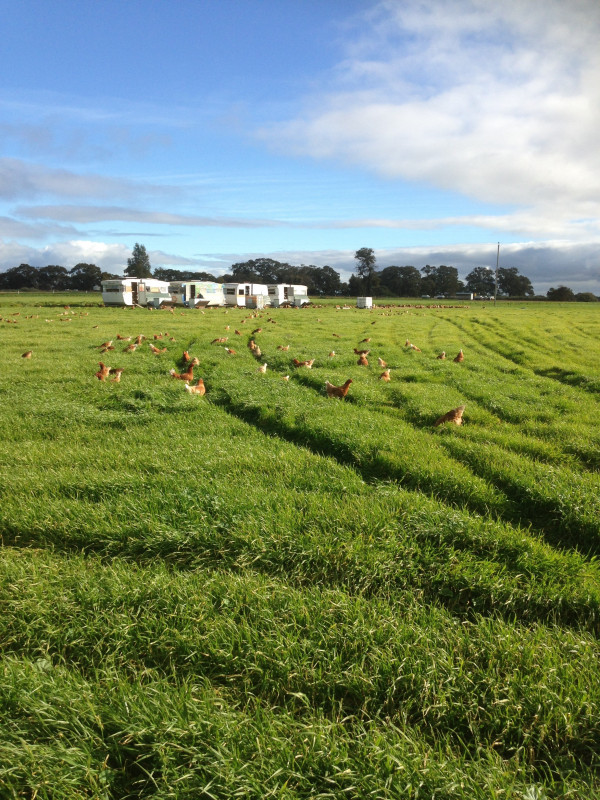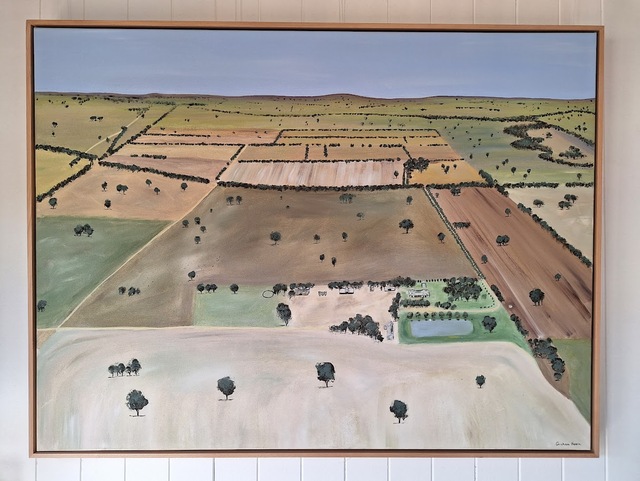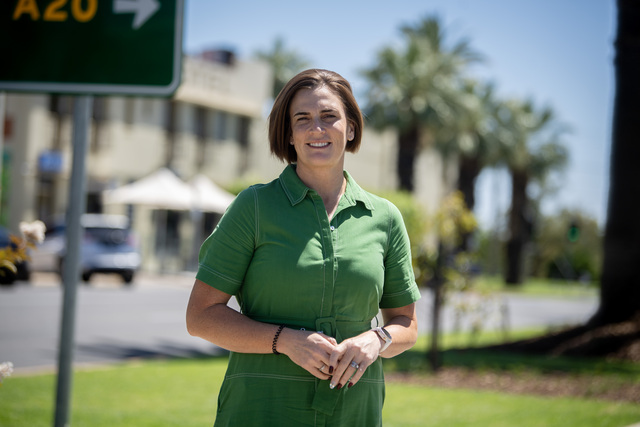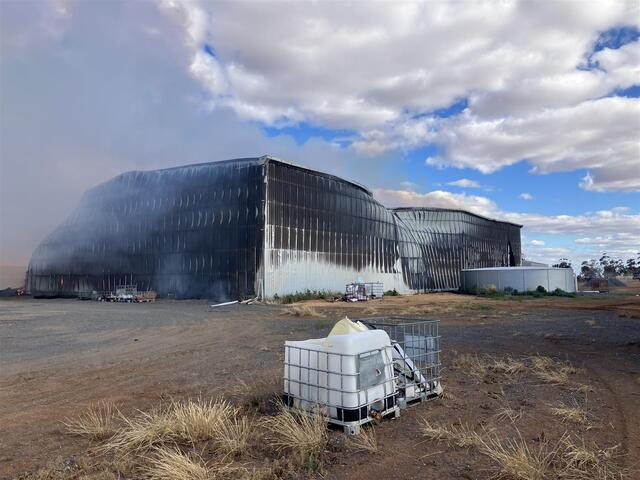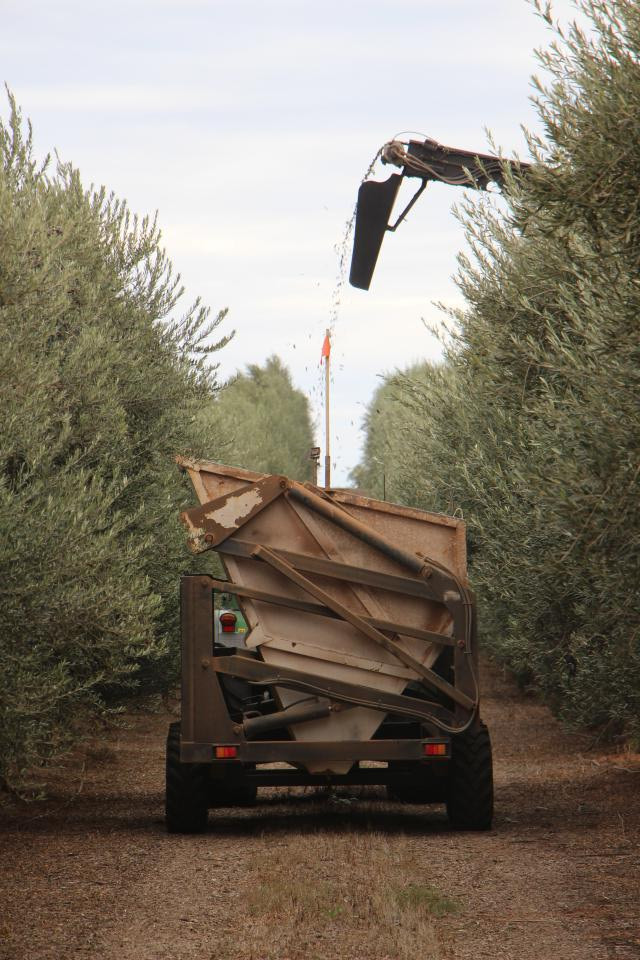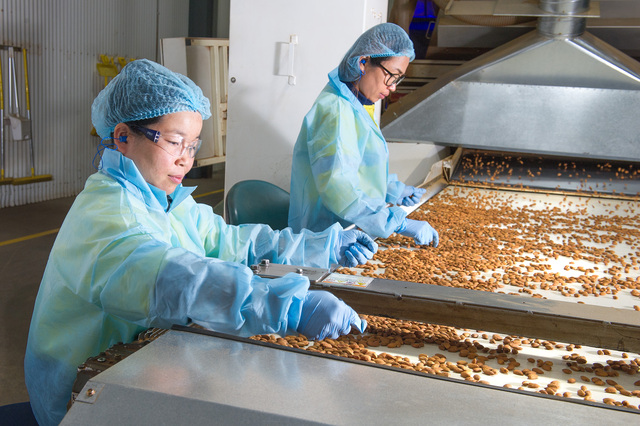A boutique Moulamein egg business has engaged in some serious lateral thinking to create markets for the unmarketable – eggs almost too big to believe, too small to sell – even some with funny shapes.
The cackleberries from 12 Good Eggs go everywhere, from online sales to dog food. And the brains trust behind the business are always looking to crack new markets
A double yolker is always an unexpected delight – especially in eggs fried or poached.
It does, however, lose some of its impact when lost in the fevered whipping of an omelette, or the less challenging scrambled eggs (which is where omelettes that don’t work, end up).
But what about the eggs where you are disappointed when out pops a single yolker?
Which brings us to 12 Good Eggs, where you get (almost) double the value for your money if you don’t mind buying eggs so large, they can’t safely fit in the standard egg carton. Instead these come on open trays, secured by plastic wrap, and they are whoppers.
Owner Kate Redfearn says, just like the fruit and vegetable market, the egg industry is a victim of marketing cosmetics – super large eggs, or those slightly misshapen, are rejected by the mainstream market because they don’t meet strict size, shape and colour.
But as Kate points out, on the inside they are not just perfectly good eggs, you get more bang for your bucks because they are so much bigger. In the trade these misfits are known as “ugly”. From contorted carrots to mega eggs, they taste the same, the benefits are the same, they just look different.
You could suppose, statistically, when you are collecting around 2500 eggs a day, as Kate does, you would be seeing plenty of double yolkers – and you would be wrong.
Using a vast amount of data, the percentages never lie – only one egg in every 1000 is likely to be a double-up.
But Kate and her happy cluckers are rewriting those record books. She buys in young hens at the point of laying, and research shows it is the younger ones which are more likely to produce the doubles.
And they must be painfully good at the jumbo goog business because every time there is an Echuca Farmers Market (which would be the first and third Saturday of every month – and the fifth if there is one) she is there with countless trays overflowing with ginormous eggs.
“We run 3500 hens across 150ha – that’s about 60 times more space per bird that is required to be classified free range and our hens have comfortable mobile homes/converted caravans that are paddock based and shifted regularly where they can sleep safely and lay their eggs,” Kate added.
“And they then spend their day roaming about the paddock enjoying the country air. The flexibility to shift hens is part of our holistic approach to land management as the soil is regenerated through rotational grazing which disperses nutrients across the farm,” she says.
“Hen health is optimised and consistent high egg quality can be maintained. Our supplementary feed is formulated by an experienced industry nutritionist and fills the gap in seasonal variations in paddock feed availability and hen health requirements.
“Our hens are moved to fresh ground regularly. This prevents manure and subsequent pathogen build-up and allows for healthy natural fertilisation of our paddocks.
“They have a wonderful free life, and in return give us great tasting, nutritious paddock eggs,” she says.
The eggs are collected daily from the farm near Moulamein, in southwestern NSW, and then whipped back up the Murray to Barham, where Kate has her factory complex – a hygienic and climate-controlled environment where she and her support team clean, sanitise, weigh, grade, stamp and pack the eggs.
And of all the gear, the grader must be just about the number one priority, as it culls all those double yolkers from the run-of-the-mill single yolkers rolling along the production belt so they can be reassigned to the ugly department and loaded onto those open trays to be sold to Kate’s growing band of devotees, who hang out to be first in when she sets up her stall on market days.
“Although we provide comfortable mobile homes for our hens to sleep and lay eggs, they are free to roam the paddocks as they please, which is why we have classified our eggs as ‘paddock eggs’,” Kate explained.
“As I mentioned, compared to the industry standard of 10,000 hens/hectare, ours is just 150 hens/hectare,” she says.
Which brings us to the heart of the egg business – the colour of the yolk. All the best research tells us whether yolks are orange or yellow, none of that is any indication of nutritional content.
Darker yolks, for example, may be the result of the hen’s diet being higher in Omega 3, so the only real difference is purely aesthetic.
“The colour of yolks in any pack of eggs is likely to vary,” Kate says.
“Real free range hens pick and choose what they eat and depending on that choice, the colour of the yolk will change accordingly, so at certain times of the year, when there is little green feed in the paddocks, yolk colour will not be as deep,” she says.
“Our hens have comfortable mobile homes/converted caravans that are paddock based and shifted regularly. It’s where they sleep safely and lay their eggs. They spend their day roaming about the paddock enjoying the country air.
“The flexibility to shift hens is part of our holistic approach to land management. Soil is regenerated through rotational grazing which disperses nutrients across the farm. Hen health is optimised and consistent high egg quality can be maintained.
“Supplementary feed is formulated by an experienced industry nutritionist and fills the gap in seasonal variations in paddock feed availability and hen health requirements (winter is the worst time, hens need sunlight to lay eggs and that is in short supply during those months).
“Also, by moving our hens to fresh ground regularly because while the manure does help the soil, the constant movement prevents manure and subsequent pathogen build-up and allows for healthy natural fertilisation of our paddocks.
“Our hens have a wonderful free life and in return give us great tasting, nutritious paddock eggs.”
That’s the Moulamein side of the business, but Barham is where the egg business connects with the business world. The factory is registered with, and audited by, the NSW Food Authority.
And while eggs might seem the farm product least likely to be in demand online, that’s not the case.
“Covid really kicked off the online marketing, we already had a strong client base from farmers markets, from our farmgate and increasingly into local retail outlets, so people still wanted them – and we still wanted the customers,” Kate says.
“I have a friend in Barham who was already running an online campaign for her branded pork products and had a distribution system in place, so we truck the eggs to Melbourne and they get sent out from there,” she says.
However, if you want to try Kate’s online option, your chances of a double yolker just slipped back to that one in 1000 because, since they don’t travel well because of their unusual size.
There’s also a family story behind the 12 Good Eggs brand, dating back to when Kate’s great grandfather turned up in southwestern NSW before World War I and founded the farm.
Kate’s mum Kerri now works closely with her – along with the occasional input from the relatively recently hatched Henry (now aged five) although the breakage rate spikes a bit on those days.
Kate’s partner Roger Knight and her father Richard handle the main farm’s cropping enterprise.
Then there’s the crew at the factory – and the security team. Kate’s four Maremmas take care of the foxes, and the occasional raptor which dares show its face.
As annoying as the predators can be, Kate says the most important defence at 12 Good Eggs is the biosecurity plan.
“Like everything in farming, there’s always risk – the avian flu outbreak at Kerang well and truly showed that,” Kate says.
“Fortunately we haven’t had any problems like that, but if we did it could be devastating so we’re very strict about it.”
Her happy cluckers are all Hy-Lines (rated the world’s most prolific layers) and she regularly turns over numbers every 12-18 months – with the retired layers, still with plenty of egg potential, going into the backyard pet business – they even have an agent to help with their relocation.
Even with the farmers market, with the growing network of retail outlets and other sales here and there, there was still one, small problem.
There were still a few surplus eggs and as Kate explains, their commitment to minimising waste and ethical farm practices to produce the farm’s high-quality, nutrient dense eggs also meant they needed to come up with a sustainable way to use the eggs we couldn’t sell because of their misshapen shape and size.
“And that one had us scratching our heads, researching all sorts of options and then we had that light-bulb moment – dog food,” she says.“Even better, we had four gorgeous guinea pigs to test our recipes.”
Fooch, which is a crunchy treat for dogs, was the end result.
“Our aim was to develop a healthy and delicious premium product, one both dogs and their owners would love, which also aligned to our values.,” she adds.
“And we think we’ve ‘cracked it’ given the wagging tails and happy faces we see at the farmers’ markets we attend.
“So, you can treat the dog you love, and treat our planet at the same time, with Fooch crunchy treats.”
You can find more facts about Kate’s multifaceted fowl fare at https://www.12goodeggs.farm/

